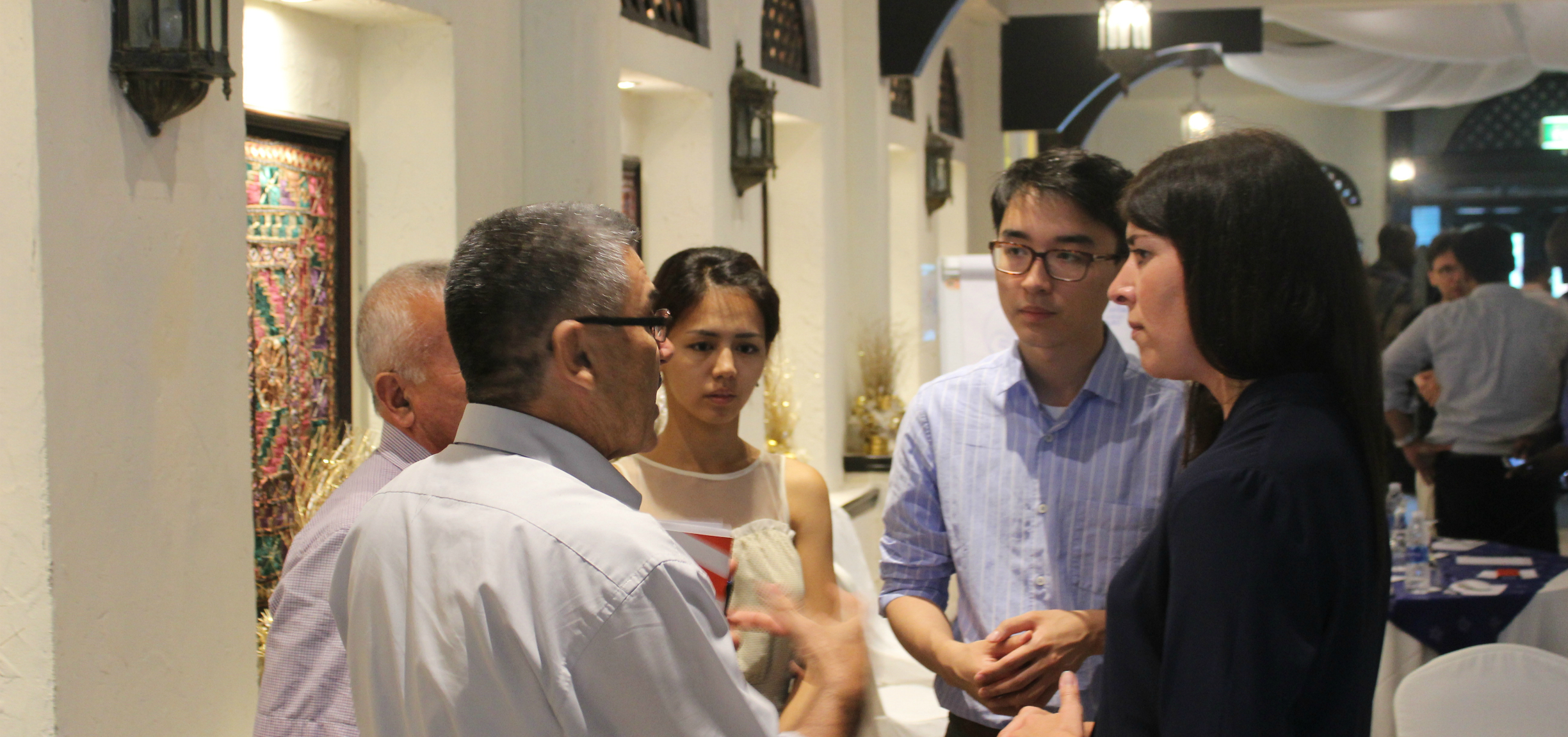CAREC participated in the annual PRISE Consortium Meeting in Dubai
17-20 July 2017, Dubai hosted the annual PRISE Consortium Meeting. The overall aim of the meeting is to take stock of what knowledge and results has been generated from the surveys, identify connections amongst PRISE projects at the project and country levels to be taken up for the synthesis stage of the research and ensure the project teams have a clear work plan mapped out for the final stage of project implementation.

On behalf of the CAREC, Zhanna Babagaliyeva and Alexey Kim took part in the meeting, as well as two national experts from Tajikistan - Abdulhamid Kayumov and Sharofzhon Rakhimov. They introduced the country’s progress of the projects and the research results:
1) The project "Migration, remittances and resilience to climate change in semi-arid economies of Senegal and Tajikistan" aims to determine the contribution of migrant remittances to the climate sustainability of semi-arid countries. The project is implemented jointly with IED Afrique and tracks the commonalities and differences between two countries – Senegal and Tajikistan. CAREC is an implementing agency in Tajikistan, closely collaborates with Tajikistan’s Ministry of Labour, Migration and Employment and Committee for Environmental Protection under the Government of the Republic of Tajikistan. At the moment, the project is approaching the final stage of implementation, and a field study of households has already been conducted, the results of which are presented at the meeting.
2) Project «Value chain analysis for resilience in dry-lands: Adaptation and development of livestock sector in Tajikistan» (VC-ARID), identifies opportunities for economic transformation and diversification in the semi-arid lands of PRISE countries, by integrating sectors rooted in semi-arid lands into national economies. Taking a three-step, innovative, common methodology on VC-ARID – the project will identify climate risk, adaptation options and opportunities for private sector development in Kenya, Senegal, Burkina Faso, Pakistan, Tajikistan and Ethiopia, specifically for the livestock and cotton sectors. The project started this year and is on the survey stage.
At the annual meeting, teams implementing the PRISE projects worked together to plan the synthesis of key results at the country and project levels, and also studied the basic reporting requirements, gender analysis, reviewed the "stories of change" in policy, as well as the stakeholder engagement process.
In the course of work on the synthesis of projects, the following was identified:
1) The main focus of the synthesis of the project on migration, remittances and resilience to climate change, and the project on the value chain analysis (VC-ARD), implemented in Tajikistan is "Climate-smart agriculture". It is possible to mutually use the research results, when sustainable to climate change agriculture can be viewed as a destination for investment of remittances by migrants, while remittances provide an opportunity for the development of sustainable agriculture.
2) Both projects meet the priority of the country - food security, which according to the National Development Strategy of the Republic of Tajikistan (2016-2020) is the main target for development of agriculture.
3) The results of project synthesis can be applied beyond Tajikistan, particularly in Central Asia: in Kyrgyzstan and Uzbekistan, due to similar geographical and socio-economic characteristics of countries, where migrant remittances make a significant contribution to GDP, agriculture is the key Economic sector, and the aridity of the territory determines the region's vulnerability to the effects of climate change.

Reference:
PRISE “Pathways to Resilience in Semi-Arid Economies or PRISE” is a five-year, multi-country research project that generate new knowledge about how economic development in semi-arid regions can be made more equitable and resilient to climate changeю It is carried out under the Collaborative Adaptation Research Initiative in Africa and Asia (CARIAA), with financial support from the UK Government’s Department (DfID) and the International Development Research Centre (IDRC), Canada.
